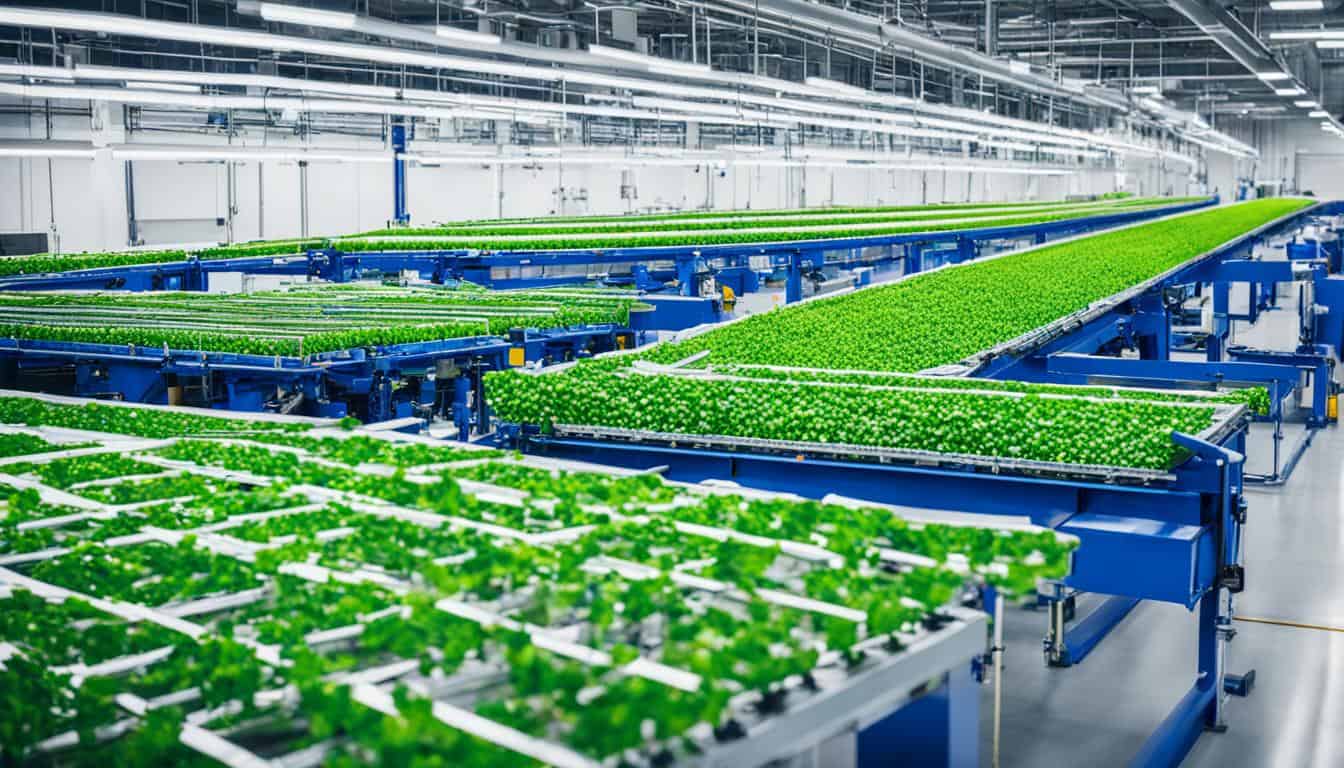Welcome to the fascinating world of waste management, where sustainability, effective waste management practices, and environmental impact draw us closer to a brighter future! Pioneering industries that recognize the immense benefits of reducing, reusing, and recycling waste are setting the stage for a world where environmental conservation and resource efficiency guide our decision-making processes.
Together, we will dive deep into the long-term benefits of waste management practices, including the reduction of waste, and the importance of recycling and reusing materials in industries worldwide. Get ready to experience first-hand how proper waste management is shaping the future of our planet and ensuring a safe, thriving environment for generations to come.
Key Takeaways
- Waste management practices, such as recycling and reusing materials, can significantly contribute to reducing the strain on Earth’s resources.
- Comprehensive waste management strategies positively impact the environment, the economy, and the future of the community.
- Effective waste management can minimize greenhouse gas emissions from landfills, helping to curb climate change.
- Adopting waste management systems can potentially lead to substantial cost savings and improved bottom lines for businesses.
- Proper waste management enhances the overall health and safety of communities, preventing environmental hazards and pollution-related illnesses.
- By supporting the growth of local economies and boosting job opportunities, waste management can serve as a catalyst for innovation and sustainable development.
- Industries implementing responsible waste management practices not only ensure compliance with regulations but also contribute to a healthier, cleaner planet overall.
11 Long-Term Benefits of Waste Management
Here is a list of 11 long-term benefits of waste management, along with supporting statistics and key information:
- Reduces Pollution and Protects the Environment
- Proper waste disposal prevents contaminants from polluting air, water and soil.
- Recycling alone saves over 185 million tons of carbon emissions annually in the US.
- Conserves Natural Resources
- Recycling 1 ton of paper saves 17 trees and 50% of water.
- Making products from recycled materials uses 74% less energy than producing them from raw materials.
- Saves Money and Creates Jobs
- The global waste management market is projected to be worth $2.5 trillion by 203011.
- Recycling created over 70,000 jobs in the US in 2021.
- Reduces Need for Landfills
- 80% of items buried in landfills could be recycled.
- The US has over 10,000 closed landfills already.
- Generates Clean Energy
- Waste Management uses waste to create enough clean energy to power over 2 million homes per year.
- Mitigates Climate Change
- Better waste management could reduce global greenhouse gas emissions by 15-20% .
- Improves Public Health
- Unsanitary waste disposal spreads diseases and releases toxic pollutants.
- Appropriate waste management could reduce disease burden by over 35% in some developing countries.
- Saves Space
- Recycling reduces the amount of waste needing disposal by over 25% .
- Promotes Sustainability
- The average American generates 4.4 pounds of trash daily, twice the global average. Better waste habits are essential for sustainability.
- Reduces Plastic Pollution
- 8 million metric tons of plastic enter the oceans each year. Better plastic waste management could reduce this significantly.
- Supports the Circular Economy
- Reusing waste streams creates a more circular economy and reduces reliance on raw materials.
Environmental Conservation Through Sustainable Practices
Adopting sustainable waste management practices can significantly contribute to environmental conservation efforts, helping protect our planet’s natural resources. By recycling, reducing waste, and composting, industries can minimize their environmental impact and promote eco-friendly initiatives.
Preservation of Natural Resources by Recycling
Industrially recycled materials help preserve natural resources by reducing the demand for raw materials, thereby easing the strain on Earth’s finite resources. When industries embrace recycling and reuse materials, they not only minimize their waste generation but also alleviate the pressure on our planet.
Reduction in Greenhouse Gas Emissions from Landfills
By reducing the amount of waste sent to landfills, industries can substantially mitigate greenhouse gas emissions such as methane, a crucial contributor to climate change. Effective waste management practices, including recycling and composting, divert waste from landfills and help to curb pollution.
Improving Soil Quality and Land Usage
Waste management practices that include recycling and composting can enhance soil quality by redirecting organic waste into compost, enriching the soil instead of polluting landfills. In addition, proper waste management can pave the way for improved land usage, allowing for agricultural, recreational, or developmental purposes rather than consuming space for ever-growing landfill sites.
The EPA outlines that recycling is an economic driver, generating jobs, wages, and tax revenues, thereby contributing to the overall economic security of a community.
In conclusion, adopting sustainable waste management practices is fundamental to environmental conservation efforts. By recycling, reducing waste, and composting, industries can play their part in protecting the environment and preserving our planet’s precious resources for future generations.
Financial Upsides of Effective Waste Management Systems
Integrating effective waste management systems can lead to significant cost savings and other financial benefits for businesses and communities alike. By reducing disposal costs and utilizing recycled materials that are less expensive compared to new ones, companies can optimize their overall resource management and strengthen their environmental impact.
Businesses and communities alike stand to gain financially from implementing comprehensive and effective waste management systems, as these practices safeguard against future expenses linked to waste disposal and potential environmental penalties.
One of the key economic advantages of waste management is the possibility of reuse within the company or by selling the waste to a third party. This not only adds a new revenue stream but also encourages a circular economy, which is instrumental in paving the way for a sustainable future.
Moreover, opting for recycled materials when purchasing raw materials can provide noteworthy financial gains. For instance, recycled aluminum can significantly cut production costs, nearly halving the expense compared to using new materials.
Here are some of the potential financial benefits of effective waste management systems:
- Reduced disposal costs
- Revenue generation through the sale of recyclable waste
- Lower expenses on raw materials through the use of recycled materials
- Avoiding potential fines and penalties associated with improper waste disposal
In conclusion, the financial incentives linked to effective waste management systems are manifold and can lead to substantial cost savings, environmental protection, and community wellbeing. By prioritizing and investing in such practices, companies and communities can harness the potential of waste management benefits and take a step closer to a more sustainable future.
Community Health and Safety Enhancements
Proper waste management is essential in fostering the health and safety of communities by reducing the release of hazardous substances and pollutants into the environment. Through responsible waste handling techniques, communities are better equipped to mitigate potential health risks associated with toxic chemicals and pollutants.
Waste management services, particularly recycling facilities, are invaluable in addressing waste in a way that minimizes dangers to human health. By optimizing the reuse and recycling of materials, the cleanliness of the environment is maintained, contributing to the overall well-being of communities.
Environmental health and community safety are closely intertwined with responsible waste management. As such, it is crucial that waste management systems are tailored to ensure that communities are safeguarded against various health hazards associated with improper waste practices.
Safety is a significant component of waste handling; waste management systems play a crucial role in ensuring communities are safeguarded against the various health hazards associated with poor waste practices.
In addition to preserving human health, proper waste management practices are vital in preserving the environment for future generations. By prioritizing recycling and other sustainable waste management strategies, communities can contribute to a brighter, healthier, and more sustainable planet.
Long-Term Benefits of Waste Management

Effective waste management strategies not only support environmental goals but also foster various long-term benefits, including fostering local employment, promoting innovation, and ensuring compliance with regulations. By embracing industrial recycling and other waste management practices, businesses can contribute significantly to economic development and set the foundation for a brighter future.
Boosting Local Employment and Economic Development
Industrial recycling and waste management services create numerous job opportunities, providing up to nine times more employment than landfills and incinerators. As a result, sustainable waste management plays a pivotal role in propelling economic development within local communities. By investing in recycling facilities, businesses can significantly improve their surrounding region’s employment and financial outlook.
Encouraging Innovation and Sustainable Product Design
The recycling and reuse of materials offer a pathway for industries to minimize waste generation, fostering innovation in product development. Sustainable product design plays an essential role in promoting a greener future by creating solutions that can be easily integrated into the circular economy. Waste management practices that center on resource conservation and environmental responsibility inspire new ideas and technological advancements, positively impacting various industries.
Compliance with Regulations and Avoiding Legal Fines
With constantly evolving local, state, and federal regulations surrounding waste management, businesses must maintain strict compliance to avoid fines and legal penalties. Sustainable waste management practices are vital not only for legal compliance but also for the long-term viability of businesses. By implementing effective waste management strategies, organizations can mitigate legal risks, ensure adherence to guidelines, and strengthen their commitment to sustainability.
Conclusion on Long-Term Benefits of Waste Management
Responsible waste management is a key factor in shaping a sustainable and prosperous future, as it serves to both protect and conserve our planet. Having recognized the long-term benefits of waste management, particularly in the areas of environmental conservation, economic gain, health, and community safety, it is critical for us to continue promoting its widespread implementation and enhancement across the globe.
Shaping the Future of Our Planet with Responsible Waste Management
By embracing sustainable waste management practices, we are taking a crucial step toward reducing waste and ensuring that our resources are used more efficiently. With a holistic approach towards waste reduction, recycling programs, and engaging waste management services, we can make a substantial and lasting impact on the overall health and wellbeing of both human and environmental ecosystems.
Call to Action: Making Industrial Recycling a Standard Practice
Now, as industries around the world grapple with the ongoing challenges of resource consumption and waste generation, the need for responsible waste management is becoming increasingly apparent. We must not only encourage businesses to adopt recycling and other waste management practices, but also consider these efforts as a vital part of their operational strategies. By driving this change, we are contributing to a greater, shared vision – one where waste management is seamlessly integrated into our collective quest to ensure a healthier, cleaner, and more thriving planet for generations to come.
FAQ on Environmental Impact
Q: What are the long-term benefits of implementing sustainable waste management?
A: Implementing sustainable waste management can lead to cost savings, environmental protection, and improved public health. It also reduces the need for landfill space and conserves natural resources.
Q: How does waste management contribute to environmental health?
A: Effective waste management helps minimize the release of toxic chemicals into the environment, leading to improved environmental health and reduced pollution in air and water.
Q: What are the economic benefits of sustainable waste management?
A: Sustainable waste management can result in economic benefits through cost savings, resource conservation, and the creation of new job opportunities in the recycling and waste management industry.
Q: Why is it important to focus on reducing waste in landfills?
A: Reducing waste in landfills helps minimize the environmental impact of waste disposal, reduces the emission of greenhouse gases, and conserves valuable landfill space for essential non-recyclable waste.
Q: How can businesses benefit from effective waste management practices?
A: Businesses can benefit from efficient waste management through cost savings, improved environmental sustainability, compliance with regulations, and enhancing their corporate social responsibility reputation.
Q: What role does waste collection play in sustainable waste management?
A: Waste collection is a crucial aspect of sustainable waste management as it helps in the efficient handling of waste and ensures proper disposal or recycling of the collected waste materials.
Q: How can waste management help in reducing the amount of waste generated?
A: Effective waste management practices can help in reducing the amount of waste generated by promoting recycling, waste reduction initiatives, and encouraging responsible consumer behavior.
Q: What are the potential effects of improper waste disposal?
A: Improper waste disposal can lead to environmental pollution, contamination of soil and water, spread of diseases, and adverse impacts on wildlife and ecosystems.
Q: Why is it essential to focus on the proper handling of hazardous waste?
A: Proper handling of hazardous waste is crucial to prevent harm to human health, protect the environment from toxic substances, and ensure compliance with regulations set by environmental protection agencies.
Q: How can individuals and businesses contribute to waste management and recycling efforts?
A: Individuals and businesses can contribute to waste management and recycling efforts by practicing responsible waste disposal, participating in recycling programs, and supporting initiatives aimed at reducing waste and protecting the environment.





Leave a Reply